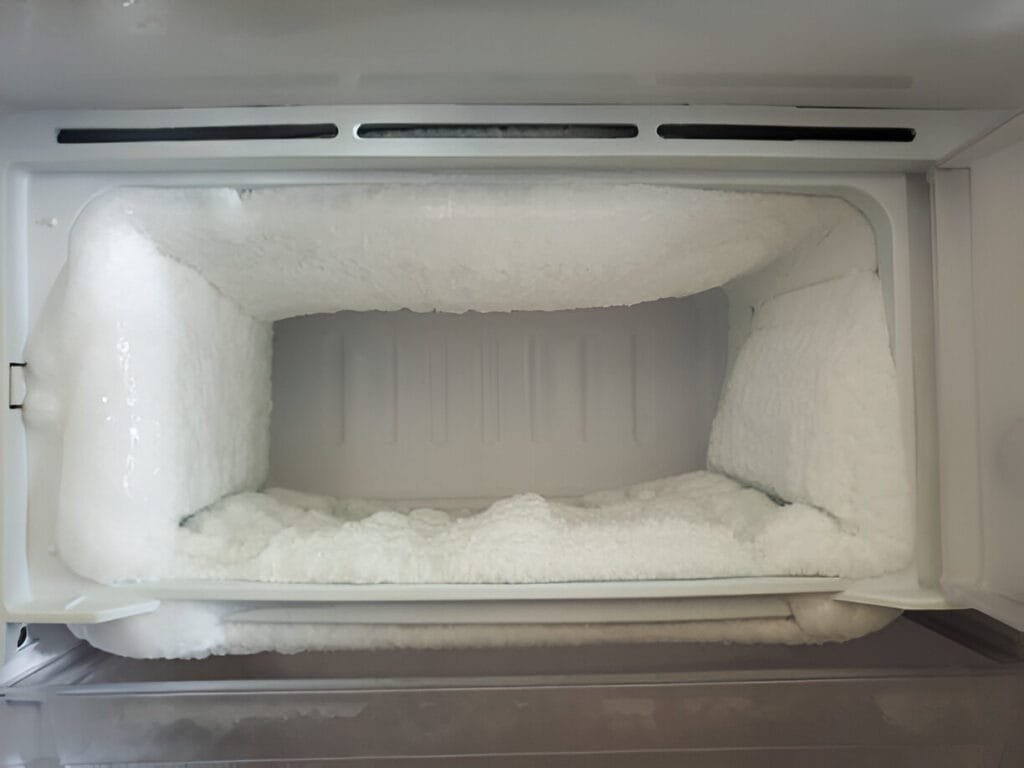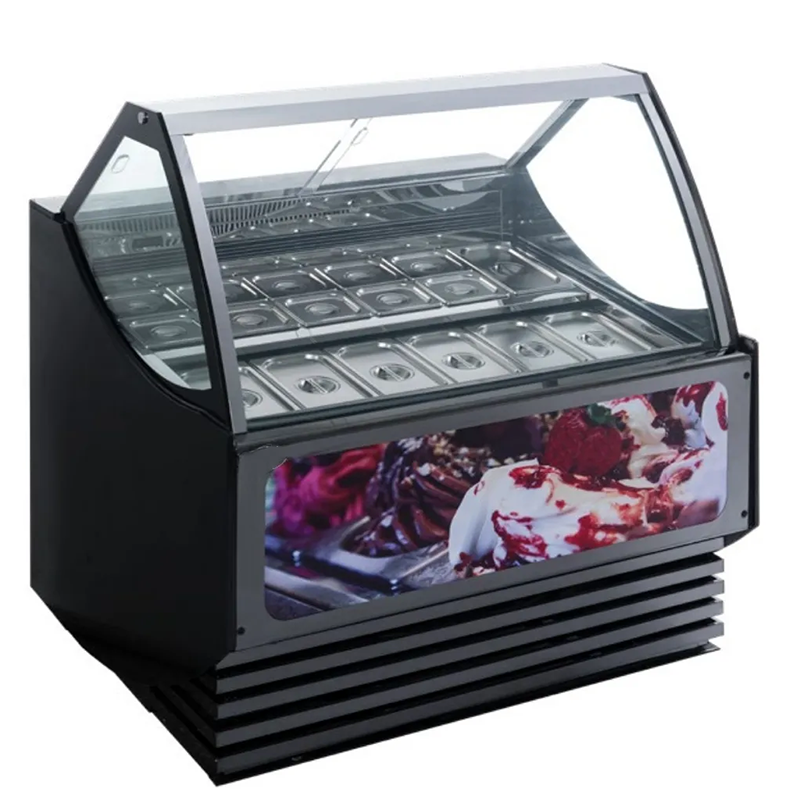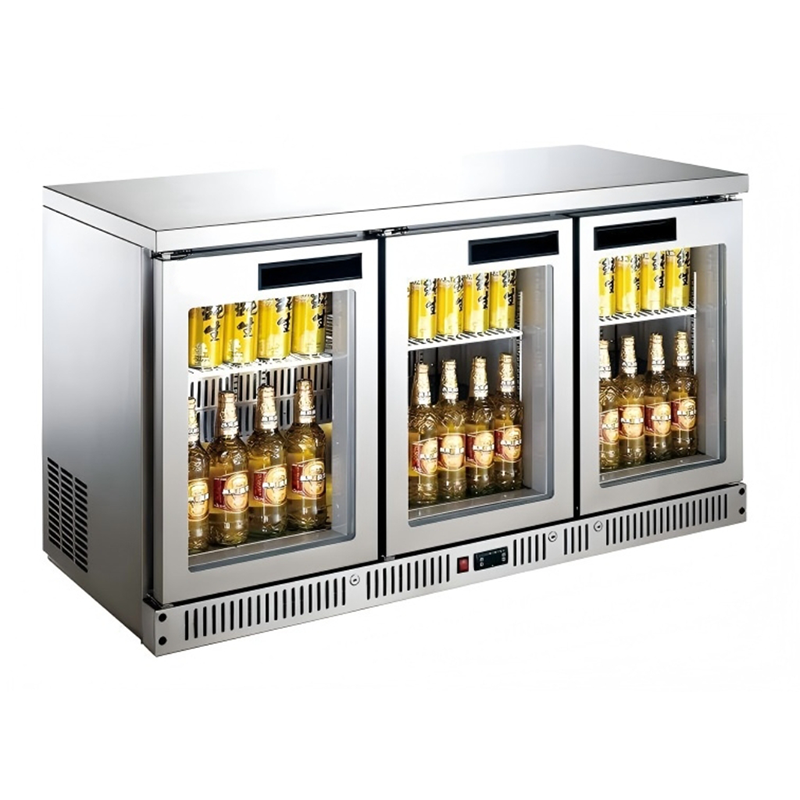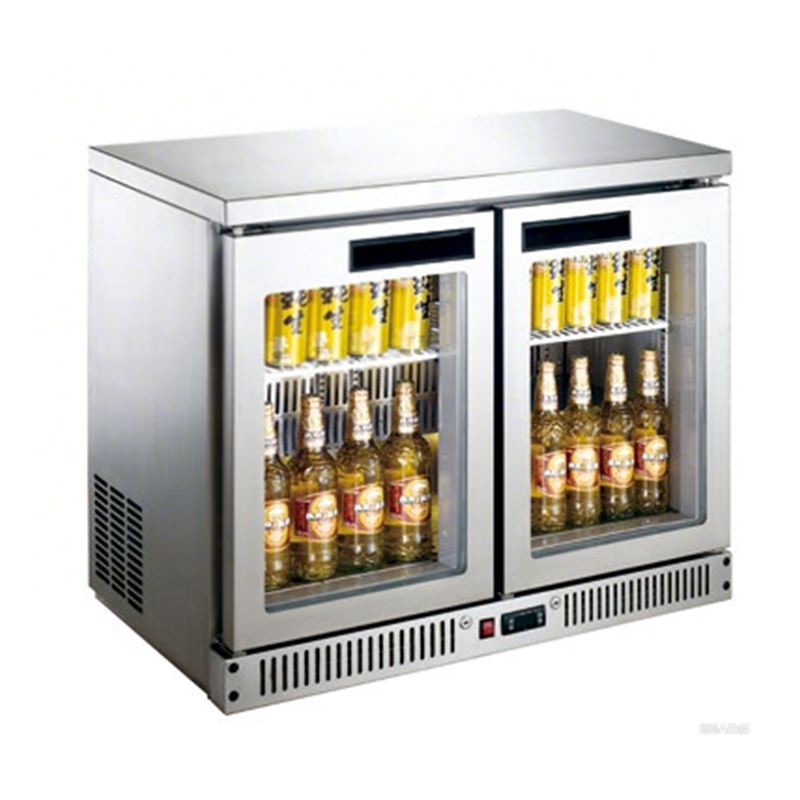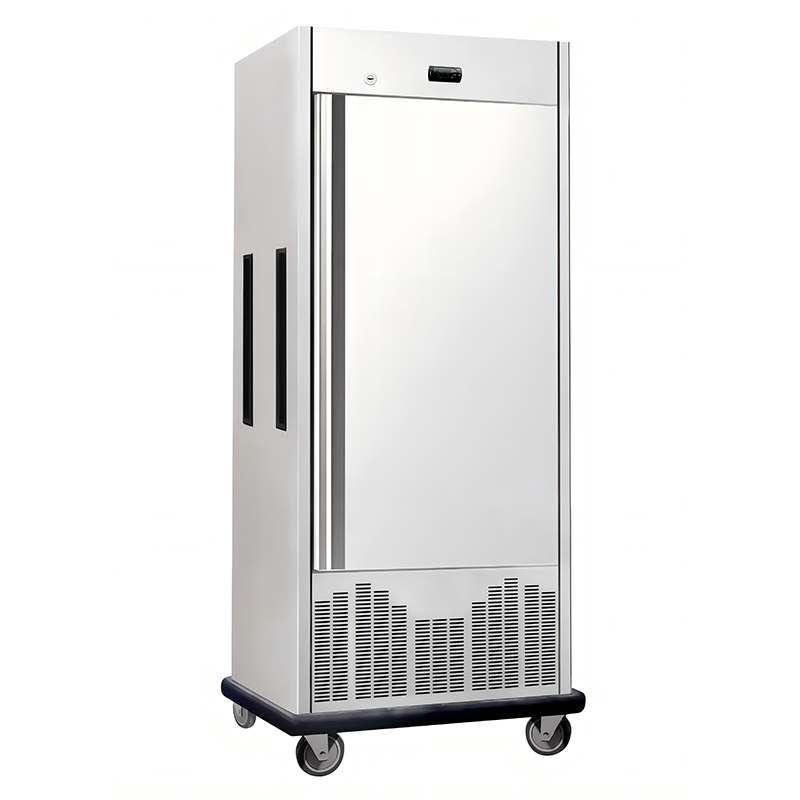Why Your Freezer Ices Up
Table of Contents
For businesses, when a freezer ices up, it can disrupt operations and impact equipment lifespan.
Addressing the root causes of freezer ice is essential for keeping your freezer running smoothly and ensuring that stored goods remain in optimal condition.
This guide explains why commercial freezer Ices up, explores the technical process behind frost formation, and offers practical tips to prevent ice accumulation in your freezer.
By understanding these factors, you can maintain consistent performance and protect your inventory from unnecessary spoilage or damage.
Common Causes of Freezer Frost: Understanding Why Your Freezer Ices Up
Frost can quickly build up in freezers if certain conditions are present. Knowing the main causes helps prevent and manage this issue effectively.
The Dynamics of Freezer Door and Air Exchange
When warm air enters, it’s one of the main reasons a freezer ices up.This constant exchange between warm and cold air upsets the freezer’s temperature balance and leads to ice buildup.
Door Seal and Gasket Issues
If the freezer’s door seal or gasket is damaged or loose, humid air can get inside and freeze, creating frost. Keeping the seal tight is crucial to make sure cold air stays in and warm air stays out, helping the freezer run efficiently.
Temperature Mismanagement and Its Consequences
Incorrect temperature settings can also cause frost to develop. Putting hot food directly into the freezer raises the internal temperature, which can make frost worse. Setting the right temperature and letting food cool before freezing are important steps to prevent ice buildup.
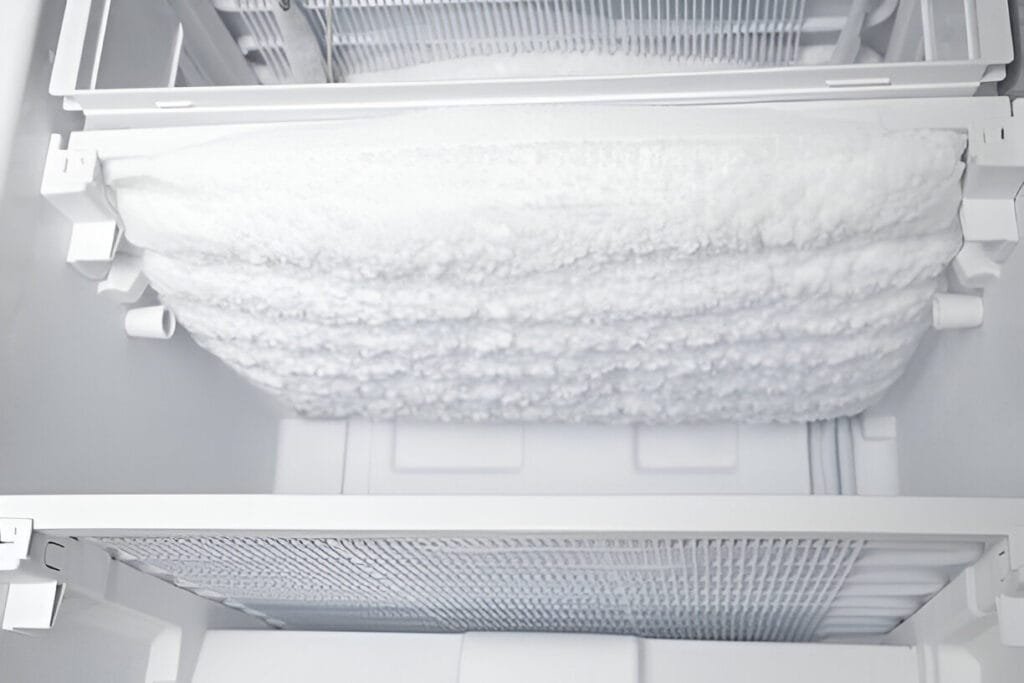
What Causes Ice Buildup in a Freezer?
Ice buildup in freezers starts with the evaporator coils, which are responsible for absorbing heat and keeping the freezer cold. When the freezer door is opened, warm air enters and brings moisture with it. This moisture condenses on the cold evaporator coils and quickly freezes, forming a layer of frost.
As frost accumulates, it acts as an insulator, making it harder for the coils to absorb heat efficiently. This reduces the freezer’s ability to maintain the correct temperature and can lead to more frequent cycles as the appliance tries to compensate.
Most freezers use a defrost cycle to melt away this frost by briefly warming the coils. However, if the defrost cycle is not working properly or the freezer is opened often—letting in more warm, humid air—frost can build up faster than it is removed. Over time, this leads to significant ice accumulation inside the freezer.
Freezer Ice Solutions and Remedies
Keeping your freezer free from excess frost requires regular care and a few practical habits. Here are some effective solutions to help reduce and prevent ice buildup in your freezer.
Inspect and Clean Your Freezer Regularly
- Defrost your freezer on a regular schedule to prevent ice from accumulating.
- After defrosting, clean the interior with a mixture of warm water and baking soda to remove any food residue or spills that could contribute to frost.
- Check the door seals for wear or damage and replace them if they are no longer airtight, as good seals help keep warm air out.
Monitor Temperatures and Store Food Carefully
- Keep your freezer at the recommended temperature for your food items to minimize frost formation.
- Store food in an organized manner to allow for proper air circulation, which helps prevent ice from forming on surfaces.
- If possible, use a lockable freezer to reduce unnecessary door openings and temperature changes.
Open Freezer Doors Less Often
- Limit how often and how long you open the freezer door, as every opening lets in warm, humid air that can turn to frost.
- Consider a commercial freezer with a glass door so you can see inside without opening it, which helps reduce frost buildup.
By following these maintenance tips and habits, you can keep your freezer running efficiently and minimize the hassle of dealing with frost.
Conclusion
When your freezer ices up, it can cause headaches for your business. By understanding the reasons behind this issue and following practical solutions, you can keep your commercial freezer running smoothly and protect your valuable inventory from unnecessary damage.

